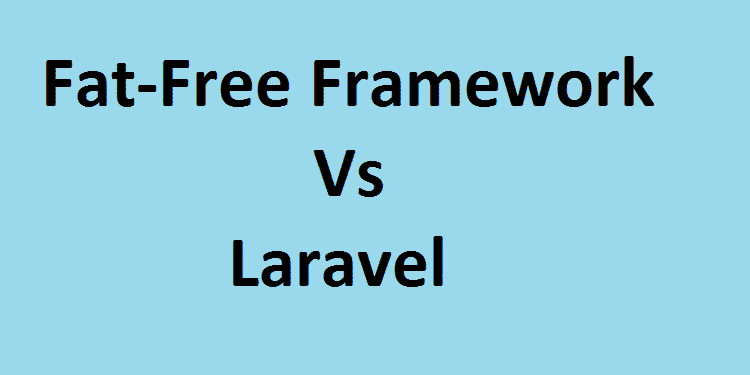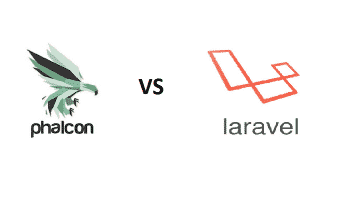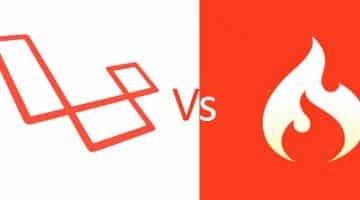Laravel is one of the most popular PHP frameworks and it has created the benchmark for other PHP frameworks. That is why it is taken as the base to compare with other existing frameworks and today, we happen to compare fat-free framework that has gained a lot of traction in the lot few years. While Laravel is a full-fledged PHP framework, Fat-free framework is classified under micro-framework. In terms of popularity, there is no comparison as Laravel is clearly the winner by far. Starting from developers to clients, for now, everyone mostly prefers Laravel. But the situation might change down the line as Fat-free framework is growing exponentially.
Difference Between The Two Frameworks –
Laravel is one of the most developed PHP frameworks for all types of web development. It is very developer-friendly due to its awesome syntax system. The development phase is going to be smooth and enjoyable. There are various functions and modules available that makes development effortlessly especially features like session, cache, routing, and authentication. On the other hand, Fat-free framework is suitable for developing a lightweight website without too much of complex applications and functionalities. It comes with various toolkits and libraries that help you to develop website faster than on most of the PHP frameworks.
Server-Client Mode – Laravel is popular due to the fact that there are so many different code reusability features. It is based on traditional MVC model and it is a perfect framework for advanced developers. There are web services, JSON API, validator for XML all of which enable you to reuse the code and modules. On the other hand, Fat-free framework is rather lightweight and it does not follow the traditional MVC model with which developers are familiar with. They have simple representation model for server-client interact with the event-driven interface. There are routing engine and F3 template engines for views. Fat-free framework does not support data mapper, Façade, HMVC and table data gateway all of which are there in Laravel.
Winner – Laravel due to better reusability features and models.
Database – Database is extremely important for any application and more so for a web application. What Laravel provides is enough but what Fat-free framework is more than enough. If your web application has the majority of its functionalities dependent on your database operation, Fat-free framework is an automatic choice.
While the database model of Laravel is object-oriented and relational, Fat-free offers both of them as well as JSON database which is in high demand in most of the web applications. Furthermore, it as NoSQL database model in addition. If you talk about the database supported, Fat-free supports more database and it exclusively supports MongoDB is vital for PHP developers.
Winner – Fat-free framework due to additional models and some vital database support.
Programming Paradigm – Both the open source frameworks have the object-oriented programming paradigm which is what is always desirable. But there is something that Fat-free framework provides that Laravel cannot. It is the support for event-driven programming paradigm. Even though event-driven paradigm is not always useful, but for website development, it is highly useful for various types of websites. Even though it is not a necessity in today’s web development, but one has to agree to the fact that it is a plus point.
Winner – Fat-free framework due to additional event-driven paradigm.
Developer-Friendliness – Laravel is designed for basic to super advanced developers. Almost anything in the web world can be created with Laravel and it is one of the reasons why PHP is where it is. Fat-free has various advantages over Laravel but they are mostly on ground levels for the beginners. For example, there is more support for template language in fat-free framework such that the development is faster and effortless. On the other hand, Laravel has WYSIWYG editor.
Winner – Laravel is for everyone even though Fat-free is more developer friendly for beginners.
Community – Since Laravel is far more popular than Fat-free framework, the community of Laravel is far greater than Fat-free framework. That is exactly why some of the developers are reluctant to make a transition from Laravel to Fat-free framework even for developing a lightweight website. Even though the documentation of Fat-free is very detailed and there are various user guides are available on the official website, there do not seem to be as good as Laravel. But if the amateur developers are willing to go through the available resources for Fat-free framework, it is an ideal framework to start with.
Winner – Laravel is a clear winner due to popularity and detailed resources.
Miscellaneous Features – Fat-free framework has a built-in debug mode that is not there in Laravel. Laravel has more cloud platform support than Fat-free framework which is where most of the web applications are hosted these days. One of the cons of Laravel is that it is too much dependent on static method calls which is why some developers prefer Fat-free framework for lightweight web development. Laravel has more E-mail protocol support like IMAP and POP3 which are absent in Fat-free framework.
Final Word – If you are looking for fast and lightweight development and you are a rather beginner in framework development, Fat-free framework is best for you but if you want feature-rich web development, Laravel is the way to go.



